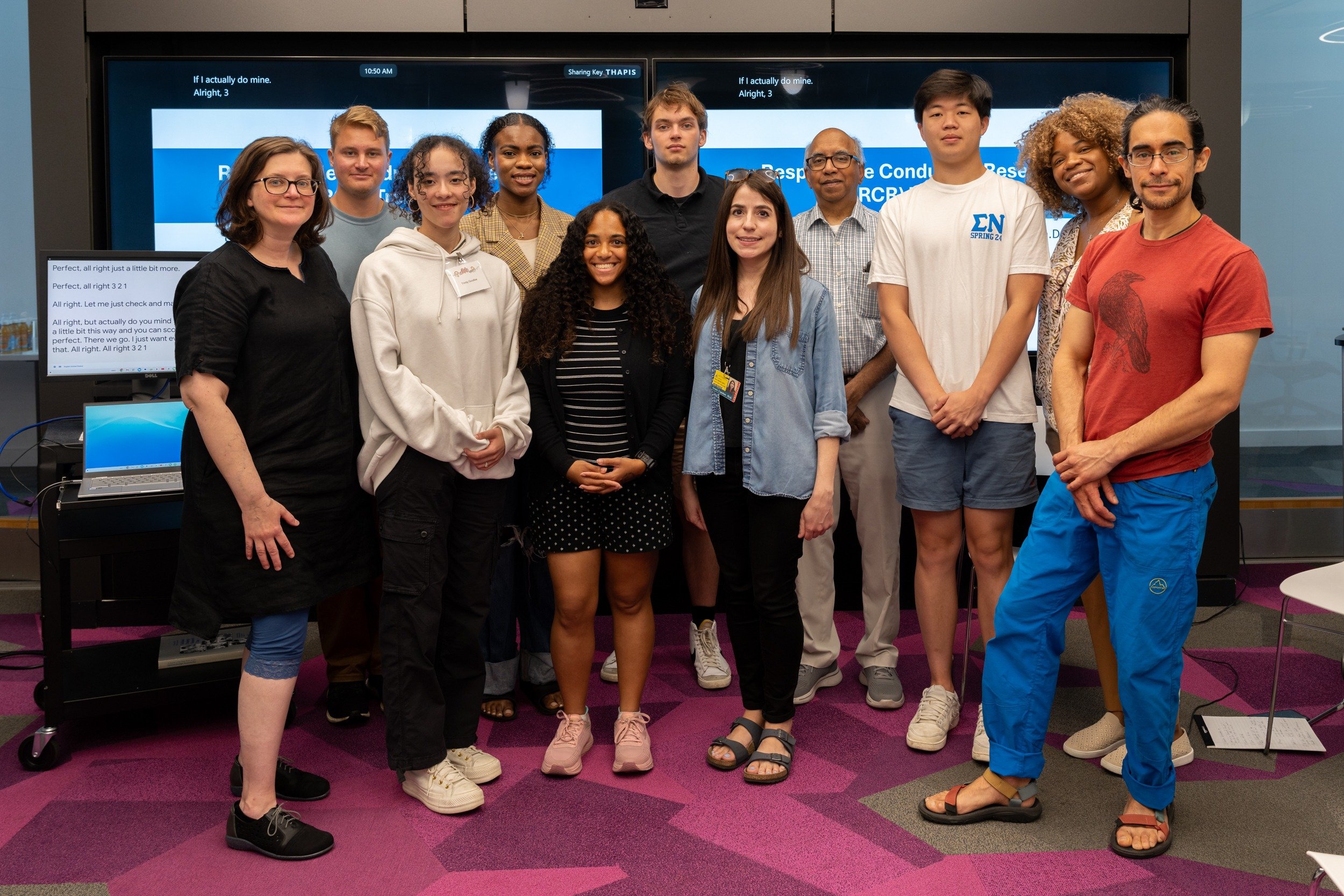Daniel Zhu spent his summer as an intern in the Bionic Ear Lab at the University of Southern California, working on research to enhance the benefits of cochlear implants. His daily tasks included conducting studies on timbre, pitch perception, and timing perception; and applying computational methods to analyze signal processing in cochlear implant technology.
But Zhu wasn’t only running experiments — he was also participating in them as a research subject, providing critical data that will be used to develop better technology for cochlear implant users like himself.
Zhu, who is starting his first year at Duke University, has been deaf since early childhood and has cochlear implants in both ears. He said being involved in research so closely related to his own identity and experience was meaningful.
“My summer internship allowed me to learn more about the field of academic research and why it’s important,” said Zhu. “And as a cochlear implant user, I felt like I brought special insight to the table.”
Zhu’s internship was supported by the Science, Technology, Engineering, Math, and Medicine (STEMM) Opportunities for College Students with Hearing Loss to Engage in Auditory Research program, called STEMM-HEAR. The program is run by Tilak Ratnanather, associate research professor in the Johns Hopkins Department of Biomedical Engineering, and Amanda Lauer, the George T. Nager Associate Professor in the Johns Hopkins Department of Otolaryngology–Head and Neck Surgery.

